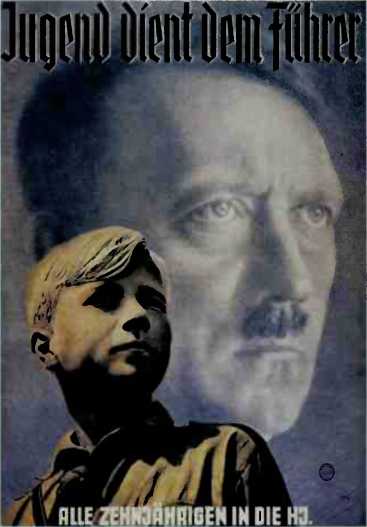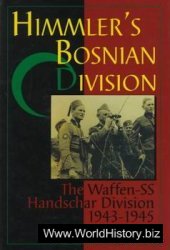Raged over Europe throughout 1940 and 1941. Americans, though they still clung to neutrality, were hoping that Hitler might be stopped. But as the new decade began, fewer and fewer countries were left standing to oppose him.
France Falls. In the aftermath of Dunkirk, France surrendered to the Nazis. What was left of the French Army escaped to Britain. There it would be led by General Charles de Gaulle, who was already working to form a Free French government in exile. A puppet government, based in Vichy, was set up by the Germans within France.
Battle of Britain. In order to invade England, Hitler
Had to control the airspace over southern England. From
August to October of 1940, the Royal Air Force (RAF) battled incoming German bombers over England in some of the fiercest dogfighting ever seen.
RAF losses were severe—900 planes went down in three months. The life expectancy of fighter pilots was measured in weeks. German losses, though, were even heavier. Unable to achieve control over English airspace. Hitler cancelled his invasion but began to terror-bomb the British. From November 1940 to May 1941, German bombers "blitzed” British cities.
Many British city kids were sent to live out the Blitz in safer rural areas. Terrified Londoners crowded into tube (subway) stations while the bombing raged. Others sheltered as best they could, wherever they could, as German bombers droned overhead.
During the Blitz of Britain, British cryptographers were hard at work trying to break Germany’s Enigma code. The German high command believed the code could not be cracked. But British intelligence got a lucky break. Before Poland fell to the Germans, Polish scientists smuggled a version of the Enigma code machine out of the country. They gave the machine to the British, who soon broke Enigma. The intelligence gathered from decoded German messages became known as ULTRA.
Though Europe’s democracies were almost entirely under fascist control in 1941, their populations were not entirely silent or submissive. Every country occupied by the Axis powers (Germany, Italy, and Japan) had resisters. They collected intelligence, helped persecuted people to stay alive or escape, and sabotaged the war effort. Women, in particular, proved excellent and aggressive resistance workers.
Charles de Gaulle led the Free French forces from England, but Jean Moulin held the Resistance movement together within France. Shortly after they took over, the Nazis tried to make Moulin, a prefect, sign a report saying French troops had committed atrocities. Moulin preferred to cut his own throat. He survived the injury but lost his job.
He soon found another. As head of the Resistance movement within France, Moulin managed to combine the many, often competing, groups of workers into one force. In his position, he knew more than anyone else about the movement. He was terrified of being caught and breaking under interrogation.
Part of his fears were realized. In June 1943, Moulin was arrested by the Gestapo in Lyon. He was tortured by the Gestapo chief, Klaus Barbie, but refused to betray his Resistance comrades. He was so badly tortured that he died while being taken back to Germany by train.
France was not the only European country to have a strong Resistance movement. In Norway, the Sivorg movement organized strong civil resistance. They encouraged small defiant acts and giving a collective “cold-shoulder" to the Nazi occupiers. Subtle yet powerful, the tactic proved successful at limiting the strength of the Nazis within Norway.
In Denmark, the Resistance’s escape service organized the transport of several thousand Jews across the sound to Sweden. Resistance workers in the Netherlands organized mass strikes against the arrests of Jews. In Bulgaria, mass opposition to Jewish deportation kept Bulgarian Jews from being sent to death camps. Polish resistance was particularly strong, especially considering the brutality of the country's defeat and occupation.
The Warsaw rising saw a quarter of a million Poles go to their deaths in a final act of defiance against Nazi oppression.
Even within Germany there were those who resisted the Nazis and spoke out against Hitler’s terrors. Dietrich Bonhoeffer, a German Protestant pastor, was among the first to protest the Nazi influence on the church in Germany. He continued to work against Hitler during the war. Arrested in 1943, Bonhoeffer was executed at Flossenburg just before the war in Europe ended, in April 1945. Resistance, by itself, did not win the war. But it gave the the Nazis chronic headaches which kept them from focusing all of their attention (as well as their troops) on the war effort. In that sense, it was at the heart of Hitler’s defeat. Many Resistance workers had ordinary existences before the Nazi era. They were human beings who were often afraid for their lives. Simple acts of sabotage could mean a firing squad. Yet these ordinary people steeled themselves and managed to strike a blow against fascism that, to this day, remains unforgettable.
A Gentian poster calls all young boys to join the Hitler Youth. Nazi clubs helped shape young Genuaus into fascist thinkers.
One of the first pieces of information obtained by ULTRA was the plan for “Moonlight Sonata.” This was a code name for an upcoming German bombing raid on the English city of Coventry. Though the British command knew about the raid in advance, they did not dare to risk notifying the population for fear that the Germans would realize their code was no longer secret.
Coventry was bombed by Germany during the night of November 14-15, 1940. Between 350 and 400 people died.
More than 43,000 civilians died in the Blitz. German incendiaries set historic cities like Bath and Coventry blazing. But Britain refused to give up. Said a defiant Churchill: "We will never sunender.”
Even as Hitler blitzed English cities, he was also waging war in the waters of the Atlantic. Sleek, lethal German submarines torpedoed ships in British waters (see sidebar on page 114). Millions of tons of food and supplies drowned in salt water as Hitler tried to starve Britain into surrender.
U. S. Reaction. The bombing of Britain and its battle in the Atlantic brought home the horror of the war to the United States. President Franklin Roosevelt looked for a way to help the British without violating U. S. neutrality. The U-boats were bringing Britain to its knees. Churchill begged Roosevelt for fifty to sixty destroyers to keep the submarines in check.
Britain had no way to pay for the ships; it was all but bankrupt. Simply sending the ships to Britain, a nation at war, would be seen as an act of war and would violate U. S. neutrality. But Roosevelt believed he had to take the risk. He sent Britain a batch of World War I destroyers, knowing he would face criticism for it.
Britain Stands Alone. European democracy was in a tailspin. The northern two-thirds of France were occupied. Fascists had taken power in Romania, and now that country was allied with Germany. In April, the Greek Army surrendered to Italian and German forces. The British were attempting to put out fascist fires all over the globe. They bested Mussolini’s Italian forces in East Africa and defeated the Italian Navy at Cape Matapan. Now, though, they faced the German Afidca Korps led by General Ei-win Rommel.
Lend-Lease. Although most Americans still insisted on staying neutral, Roosevelt felt that the situation demanded more U. S. action. During one of his radio broadcasts, the president announced his plan for the United States to become the "great arsenal of democracy.” Since the British could no longer afford to buy arms, the United States would "lend” them to Britain.

The extra arms helped the British hold out into 1941. Hitler was unable to force the quick sunender he had expected. Frustrated, he turned his attention to Russia.
Hitler Turns East. Though the Soviet Union and
Germany had signed a nonaggression pact in 1939, Hitler had always had his eye on western Russia for German e. xpansion and was now determined to attack his eastern ally. In April, paving the way, the Germans trounced tiny Yugoslavia. The Yugoslavs fought desperately; the wounded and dead approached 100,000. But within two weeks, the Nazis had control of the countiy.
In June 1941, in an operation code-named Barbarossa, German troops invaded the Soviet Union. Moving quickly through Minsk, Smolensk, Sevastopol, and Kiev, the Germans captured nearly one million Russian soldiers in less than a month.
Only in the north were the Germans halted as they attempted to seize the city of Leningrad. The citizens of this historic Russian city would not let go. For two and a half years, they held out against the Germans, although close to a million people died, most from starvation and cold.




 World History
World History









